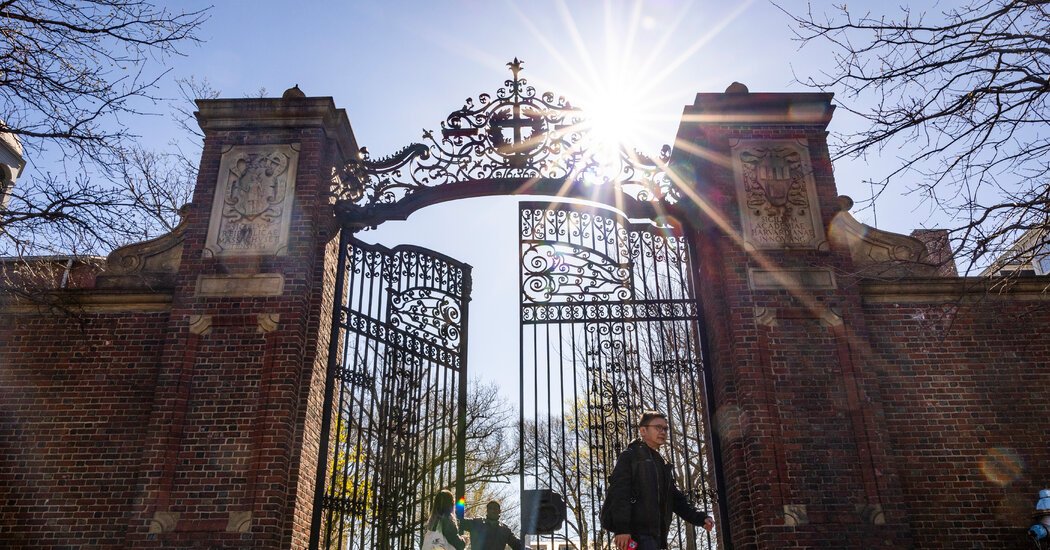Harvard said on Tuesday that it would now avoid taking positions on matters that are not “relevant to the core function of the university,” accepting the recommendations of a faculty committee that urged the university to dramatically reduce its messages on issues of the day.
If put into practice, Harvard would no longer issue official statements of empathy, which it did for Ukraine, after the Russian invasion, and for the victims of the Oct. 7 Hamas attacks in Israel, for example.
“Issuing official statements of empathy, runs the risk of appearing to care more about some places and events than others,” the report said. “And because few, if any, world events can be entirely isolated from conflicting viewpoints, issuing official empathy statements runs the risk of alienating some members of the community by expressing implicit solidarity with others.”
The university’s Institutional Voice Working Group, made up of eight faculty members, issued the report, with a set of principles and a recommended path forward, which the administration and governing board accepted.
“Harvard isn’t a government,” Noah Feldman, a Harvard law professor and a co-chair of the committee that developed the recommendations, said in an interview with The Harvard Gazette, released Tuesday as part of the university’s announcement. “It shouldn’t have a foreign policy or a domestic policy.”
The report, however, did not fully embrace “institutional neutrality” — a principle promoted by the University of Chicago, in which universities commit to staying out of political and social matters. Some universities, including Stanford University and Northwestern, announced shortly after the Hamas attack that they would adopt the policy.
Mr. Feldman said though the recommendations had some overlap with institutional neutrality, there were also differences.
A key difference, Mr. Feldman said to The Gazette, is that “as an institution with values, we have a responsibility to promote our core function as an educational institution and defend ourselves against forces that seek to undermine our academic values. In that sense, we aren’t neutral, and we can’t be.”
For years, universities had, mostly without controversy, issued messages on any number of world and local events, from the Russian invasion of Ukraine to racism at home. But perhaps unlike any other issue, the Israeli-Palestinian conflict split university communities, and clarified the downsides of such statements on highly contested topics.
Harvard came under withering criticism for how it communicated after the Oct. 7 attack by Hamas on Israel.
Harvard, for some critics, like the university’s former president Lawrence H. Summers, was woefully slow in denouncing a pro-Palestinian letter by a student coalition, which held “the Israeli regime entirely responsible for the unfolding violence.” Dr. Summers suggested that the void left by Harvard’s slow response had allowed the student statement to stand as the university’s official position in the minds of some people.
After Harvard’s president at the time, Claudine Gay, released a series of statements, including one that condemned the “terrorist atrocities perpetrated by Hamas” and called them “abhorrent,” the administration was accused of capitulating to influential alumni and wealthy donors. She ended up resigning, in part for her handling of the protests over the Israel-Hamas war.
Mr. Feldman said the transition would not be easy. It would require a culture change, for people inside and outside of the university to accept that “the university has genuinely adopted a ‘say less’ policy,” he told The Gazette.
Anemona Hartocollis contributed reporting.


